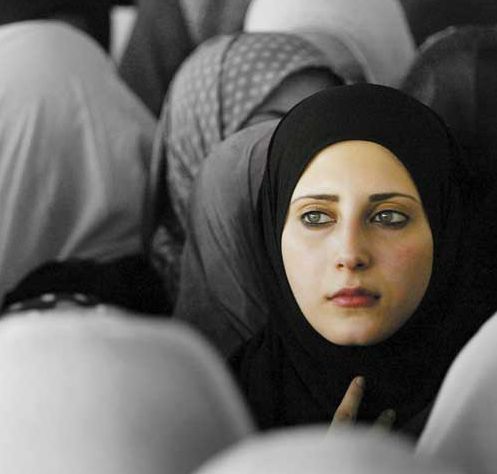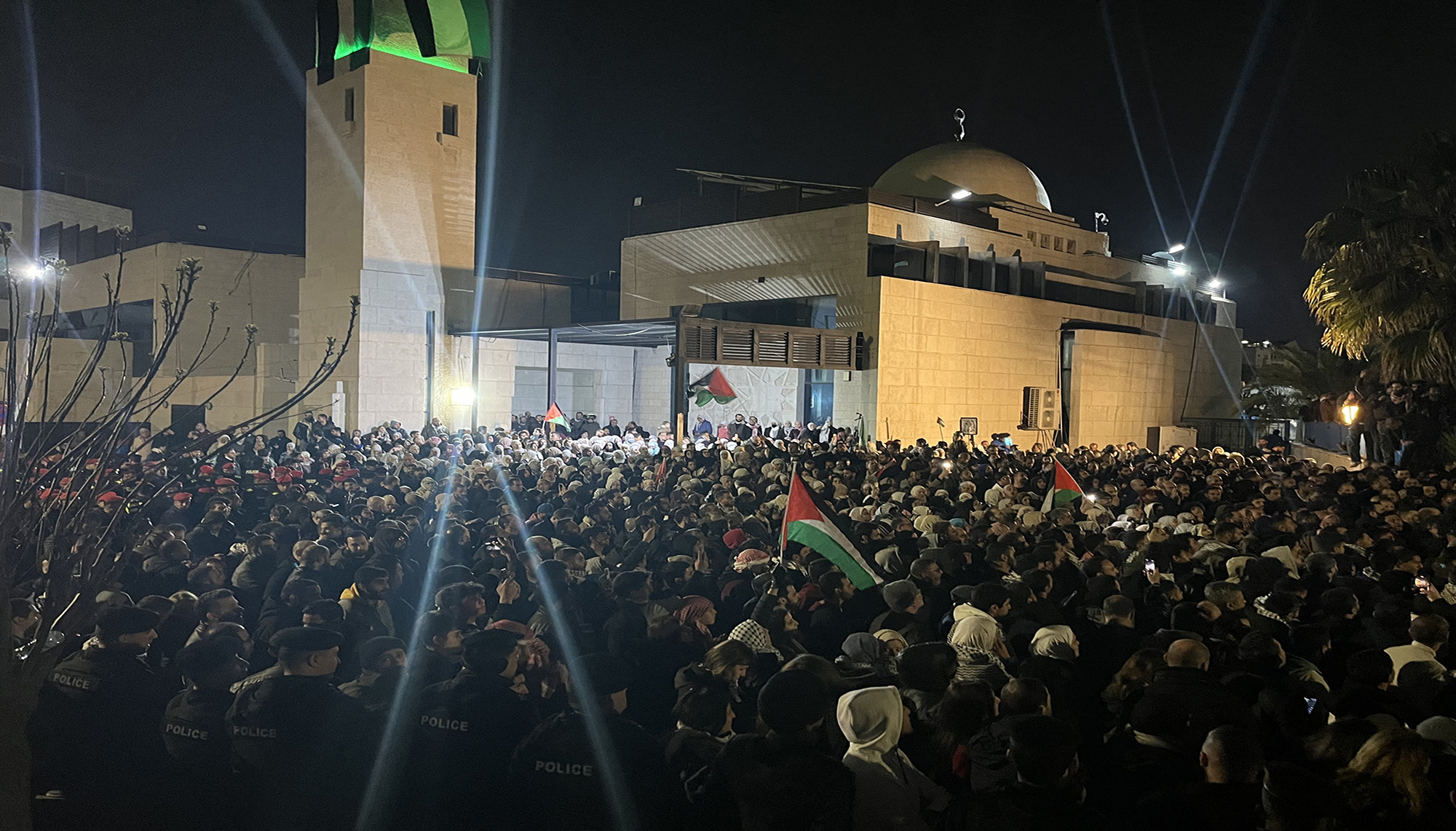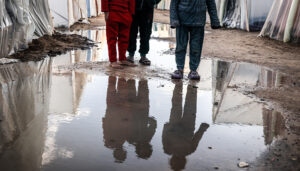هل يوجد أي نوع من الشرف في ما يسمى بجرائم الشرف؟
تمحيص مفهوم الشرف من وجهة نظر مرتكبي جرائم الشرف
بقلم: كارول كابلانيان
ترجمة: شادن عبد الرحمن
لم يكن التقصي عن هذا الموضوع بالأمر السهل. كلما تعمقت في فهم حيثيات جرائم الشرف، كلما ازداد تساؤلي عن كيفية تكوين الناس لمعتقداتهم و مفاهيمهم. دعوني ابدأ بشرح معنى الشرف كما جاء في هيومن رايتس ووتش.
تعرف الهيومن رايتس ووتش جرائم الشرف بأنها: “أعمال عنف، عادة ما تكون جرائم قتل، يرتكبها أفراد العائلة من الذكور ضد أحدى الإناث من العائلة التي باعتقادهم قد دنست شرف العائلة. و قد يتم استهداف الأنثى لأسباب عدة منها رفض الزواج المرتب له من قبل عائلتها، تعرضها للإساءة الجنسية، سعيها للطلاق حتى لو كان الزوج قيسيء إليها بطريقة أو بأخرى، أو لارتكابها الزنا (إقامت علاقة جنسية خارج نطاق الزواج). مجرد الاعتقاد بأن المرأة قد قامت بأي تصرف يسيء إلى شرف العائلة يكفي لشن الهجوم (هيومن رايتس ووتش، 2001).
عبر البحث الأكاديمي و اقامة الفرضيات بخصوص الشرف و الجرائم المرتكبة باسمه، لم أتصور بأنني سأحظى بفرصة اللقاء برجال ارتكبوا جرائم قتل باسم الشرف. و لكن الفرصة سنحت قبل شهرين، فرصة لم يكن بإمكاني تفويتها، فلقائي بهم كان ضروريا لجمع المعلومات التي أحتاجها عن طريق الاستماع إلى قصصهم، ووجهات نظرهم، بالإضافة إلى تعريفهم للشرف، مفهومهم للذكورة و الأنوثة ، ما هو الحب من وجهة نظرهم، و كيف ينظرون للقانون.
كان يوم الإثنين يوما حارا جدا، و جلست متوترة في سيارتي في طريقي إلى السجن، محاولة جمع كل ما أعرفه عن القضية في صفحة واحدة. كنت متوترة و قد طغت علي كل التفاصيل، و في نفس الوقت، قلقة بشأن ما ظننت بأنني على وشك سماعه من هؤلاء الرجال. ظللت أذكر نفسي بأن هذه الجرائم ليست بالجرائم العادية كما أنه لم يتم ارتكابها تحت ظروف عادية. وصلت إلى السجن أخيرا و تم أخذي إلى غرفة كبيرة. و بمجرد دخولي رأيت 11 رجلا أخبرت بأنهم الرجال الذين سأجري معهم المقابلات. نظرت إليهم بتمعن، و فوجئت بأنهم لم يطابقوا الصورة النمطية التي لدي عن القتلة، بل على عكس ذلك، بدو رجال عاديين يمتلكون من المشاعر ما ظهر على وجوههم في تلك اللحظة. اعتقدت بأنهم يبدون متقبلين و مقتعيت بفكرة التحدث إلي. بدأت بالجلوس معهم بشكل منفرد، لا يفصلني عن كل منهم سوى طاولة. و أدهشتني السكينة التي يمتلكونها مقارنة بالفعل الذي ارتكبوه. في البداية، كان من الصعب علي تفهم طريقة تفكيرهم. أنا و هم نشأنا في نفس المجتمع، و مع ذلك شعرت بأن كل منا يعيش في عالم مختلف. كل الرجال الذين قابلتهم قصصهم متشابهة. تسعة من الأحد عشر رجلا كانوا إخوة قاموا بقتل أخت لهم. و الباقي آباء. قصة أحدهم لا زالت عالقة في نفسي بكل وضوح حتى هذا اليوم…
كان فراس* في الرابعة و الأربعين من عمره، حياني بدفء و سألني عن هدف زيارتي. أخبرته بأن زيارتي هي جزء من بحث أجريه بهدف فهم الأفكار المتعلقة بالشرف. أجابني فراس بأنه يسعده مساعدتي بذلك. و طلبت منه أن يقص علي قصته، وأن يخبرني عن سبب وجوده بالسجن، فأغلق عينيه و أخذ نفسا عميقا قبل أن يبدأ حديثه…
” شقيقتي كانت في الثانية و العشرين من العمر. بدأ كل شيء في عام 2004. في يوم من الأيام مرضت شقيقتي، و نزفت فأخذتها والدتي إلى المستشفى. مرت بضع ساعات قبل أن تتصل بي ثائرة، قالت لي عليك أن تطهر هذا الدم، هذا العار الذي قد أصابنا. في البداية لم أفهم، طلبت منها أن تتمهل، فقالت: ” ألم تفهم؟ شقيقتك قد اغتصبت، و عليك الآن أن تنهي هذا العار”. أصبت بصدمة، كان هذا آخر ما توقعته. شقيقتي كانت فتاة صالحة. لقد هربت من المستشفى و تم إدخالها إلى الجويدة لحمايتها. في ذلك الوقت ذهبت إلى الرجل الذي اغتصبها علني أتوصل إلى حل ما. اقترحت عليه أن يتزوجها، و بذلك لا يطاله أو يطالها أي مكروه. ولكنه رفض عرضي فعدت إلى البيت تطغى علي مشاعر الغضب. استطاع والدي أن يرجع شقيقتي إلى المنزل بشرط أن لا نقوم بإيذائها. عندما وصلت إلى البيت، كنت في المطبخ، وكلي سخط و حزن بسبب ما حدث. نظرت إليها، كانت تبكي و قالت أنها تكره هذه العائلة و الطريقة التي تعامل بها. أخبرتني بأنني الملام في ذلك، استفزتني فقتلتها”
ملأ الصمت الغرفة. نظرت إليه بعد ذلك و سألته كيف قتلها، ماذا استخدم لفعل ذلك، فنظر إلي و قال:
“قتلتها بسكين. قمت بطعنها مرة تلو الأخرى، و إلى هذا اليوم لا يمكنني تذكر تلك اللحظة بوضوح”
سألتها بعدها عن عدد الطعنات التي وجهها إليها، ولم أكن أبدا مستعدة للجواب الذي كنت على وشك سماعه. نظر فراس* إلي مرة أخرى و أجاب:
“أربعة و ستون مرة، طعنتها أربعة و ستون مرة”
لم استطع أن أصدق ما سمعته، طلبت منه بعدها أن يشرح لي ما هي الجريمة التي اقترفتها شقيقته، تلك الجريمة التي كلفتها حياتها و استحقت عليها أن تطعن ستة و أربعون مرة بدم بارد. لزم فراس * الصمت لعدة لحظات قبل أن يجيبني ببطء:
“اسمعي، لا يستطيع الكثير من الناس تفهم أن شقيقتي ليست هي الضحية الوحيدة هنا. أنا أيضا كنت الضحية، و لا زلت. لست نادما على قتلها، ولكنني ألوم المجتمع الذي نعيش فيه و تقاليدنا. الشرف أهم من الحياة، إنه أغلى ما يمتلكه الرجل، و إذا سلب منك، إذا ليس هنالك ما تحيا من أجله، الشرف كالزجاج، إذا تحطم لا يمكن إصلاحه، سيكون عليك استبدال الشيء كله. هكذا هو الأمر بالنسبة إلينا، إذا لوث أحدهم شرفك، عليك أن تنظفه، لا يمكنك أن تصلحه، إزالته هو الحل الوحيد”
عجز لساني عن الكلام، ولكنني شكرته. و قبعت في مكاني بصمت، بينما ظلت كلماته تتردد أمامي. فكرت :”أربعة وستون مرة”، كيف أمكنه ذلك، و كم من الألم تحملت شقيقته.
غادرت السجن حزينة ذلك اليوم، و مع ذلك أصبحت الصورة أوضح في عقلي. كل البحث الذي أقو به أصبح أكثر واقعية. بين هؤلاء الرجال لي كيف يرون القانون – و كيف أنهم يظنون بأن السجن مدة ستة أو سبعة سنين بسبب قتلهم شخصا ما ليس بالأمر المنصف، شرحوا لي ما يعنيه المجتمع و التقاليد بالنسبة إليهم، و الأهم من ذلك، أخبرني جميعهم بأن الشرف هو رمز و قانون يعيشون حياتهم ضمن إطاره، هم لا يعرفون سبب أهمية الشرف و لكن هكذا هي الحال، هكذا تربوا و على هذا نشأوا.
ينحدر مفهوم “القتل بدافع الشرف” في العالم العربي من أصول بدوية عشائرية تسبق المسيحية و الإسلام. الرمز أو القانون يعود إلى عام 1200 ما قبل الميلاد وفقا للقوانين الحامورابية و الأشورية، والتي أعلنت عفة المرأة ملكا لعائلتها. أقر الإسلام للمرأة حقوقا كثيرة، و لكن النظام العشائري المتأصل ظل موجودا. ولأن رغبة الرجال في البقاء موقعا للقوة لا تزال موجودة، اختاروا حرمان المرأة من هذه الحقوق، تاركين المرأة ترتع في الجهل بحقوقها و بدينها (العشمواي، 2004)
و هنالك نظريات أخرى حاولت تفسير بقاء هذه العادة على قيد الحياة حتى يومنا هذا. يمكننا بالطبع اقتراح البنية البطريركية لكثير من المجتمعات كسبب من الأسباب. ولكن، هنالك من يجادل – وهو جدال مثير للاهتمام ويبني على موضوع لا يتعلق بالثقافة أو المجتمع- بأن المشاكل التنموية الموجودة في كثير من هذه المجتمعات تزيد من تفاقم المفاهيم المتجذرة ثقافيا فيما يتعلق بالجنس و العنف. مما لا شك فيه أن الأسباب متعددة و معقدة، وأي تغير مرجو يجب أن يتناول الجوانب الاجتماعية و الاقتصادية و القانونية لهذه الجرائم في آن واحد. بالرغم من كل ذلك، فإن لقائي بفراس قد اقنعني بضرورة الانخراط الغير تقليدي بخصوصية ثقافتنا و التعدد فيها. تقاليد الكرم و الأخلاق الفاضلة التي نفتخر بها – و بخاصة كأردنيين- لا يمكن لها التواجد جنبا إلى جنب مع القتل المتعمد تحت ستار الشرف.
لقد حان الوقت لحوار على مستوى الشعب بأكمله موضوعه الشرف. يجب علينا جميعا أن نعمل على استعادة معنى الشرف. عسى أن يكتب على ضريح هذه الجرائم التي لا تمت للشرف بصلة: “هنا يرقد الماضي لأمة استعادت شرفها، و انطلقت في طريقها الشريف بحق”
—
الأسماء المستخدمة في هذه المقالة ليست حقيقية.*
كارول كابلانيان هي باحثة في جرائم الشرف في الأردن و الباكستان، و هي طالبة دكتوراة ولدت في الأردن و تعيش في الخارج في الوقت الحالي.
شادن عبد الرحمن ناشطة و كاتبة، إحدى مؤسسي حبر، ،تحمل شهادة الماجستير في التسويق، و اليوم تعمل مع مؤسسة غير ربحية في عمان.
Is there any honour in honour crimes?
An examination of perceptions surrounding notions of ‘honour’ through the voices of men who killed
Written By: Carol Kaplanian
Researching this subject has not been an easy task. The more one delves into understanding the dynamics of honour crimes, the more one questions the way beliefs are formed and how perceptions are made. Let me start by explaining the meaning of honour as portrayed through Human Rights Watch.
They define honour killings as “acts of violence, usually murder, committed by male family members against female family members who are perceived to have brought dishonor upon the family. A woman can be targeted by her family for a variety of reasons including, refusing to enter into an arranged marriage, being the victim of a sexual assault, seeking a divorce-even from an abusive husband-or committing adultery. The mere perception that a woman has acted in a manner to bring ‘dishonor’ to the family is sufficient to trigger an attack” (Human Rights Watch, 2001).
Through conducting academic research and theorizing material surrounding honour and crimes committed in the name of honour, I never thought that I would get the opportunity to meet with men who committed murder in the name of honour. The opportunity arrived around two months ago; an opportunity not to be missed and I felt it was vital for all the data I was collecting as I can hear their stories, their reasoning, their understanding of honour, their perception of gender, their understanding of love and their critique on the law.
It was a hot Monday morning. On the way to the prison, I was nervously sitting in the car, trying to accumulate all that I know regarding the issue in one box; in one page. I was overwhelmed and slightly nervous, I was worried about the things I was about to hear, and I kept reminding my self that this is no ordinary crime committed under no ordinary circumstances. I arrived to the prison and was taken to a large room. As soon as I glanced inside I saw eleven men sitting there and was told that they were the men I was to interview. I had a good look inside, and was surprised to realize that none of them fit the stereotypic notion of a ‘killer’. On the contrary, they looked like ‘normal’ individuals with emotions portrayed on their faces. They looked like they were accepting and they embraced the idea of talking to me quite openly. I started seeing them one by one; the only object dividing us was a table. I was startled with how much peace they possessed in relation to what they have committed. At first I was finding it so hard to relate to the way they thought. We came from the same culture, yet it felt like worlds of difference divided us. The men all had similar stories. Nine out of eleven of the men were brothers who killed their sisters. The remainder were fathers. Until today, one man’s story lingers in my ears so clearly….
Firas* was forty-four years of age, he greeted me quite warmly and asked what the purpose of my visit was. I told him that I was conducting research to further understand the notions surrounding honour. He responded and said that he was happy to help. I asked him to tell me the story, the reason why he was in jail, then he shut his eyes, took a deep breath and started speaking….
“My sister was twenty-two years old. It all started in 2004. One day she got sick, she started bleeding and my mother took her to the hospital. A few hours later my mother calls me; she was frantic; she said that I had to cleanse this blood, this shame that has been bestowed upon us. At first I was confused, I kept telling her to slow down, then she said, ‘don’t you get it; your sister was raped, and now you have to finish off this shame’. I was in shock, this was the last thing that I have expected. My sister was a good girl. She ran away from the hospital and was kept in Juwaideh under protective custody. In the meantime I went to negotiate with the man who raped her for some solution. I suggested to him that if he married her, no harm would come his way or hers. He rejected the proposal and I went home feeling angry and very overwhelmed. My father managed to release my sister from prison on the condition that we would not harm her. She arrived home, I was in the kitchen. I was filled with rage, and sadness. I looked at her, she cried and said that she hates this family and the way she is treated. She told me that I was to blame for it, she provoked me and I killed her”
The room was filled with silence. I then looked at him and asked how he killed her, what did he use, he then looked at me and said:
“I killed her with a knife. I kept stabbing her, and until today I don’t remember that moment very clearly”
I then asked him how many times he had stabbed her; and was far from prepared to the answer I was about to hear. Firas* then looked at me and said:
“Sixty-four times, I stabbed her sixty-four times”.
I could not believe what I was hearing, I then asked him to explain to me what was the crime that his sister committed; a crime where she deserved to be stabbed sixty-four times; stabbed in cold blood. Firas* was quiet for a few moments, then he slowly replied:
“You see, not many people understand that my sister is not the only victim here. I was a victim, and I still am. I don’t regret killing her, but I blame our cultures and our traditions. Honour is more important than life, it is the worthiest asset a man can hold, and if it is taken from you, then you have nothing to live for, honour is like a big piece of glass. If someone cracks the glass, you can’t fix it, you will have to replace the whole piece. This is how it is for us, if someone stains your honour, you have to clean it, you can’t fix it, removing it is the only way”
I was speechless, I thanked him, and sat there in silence as his words flashed across me repeatedly. “sixty-four times” I kept thinking, I could not understand how that could be possible or how much pain his sister endured.
I left the prison that day with a sense of sadness, but held a sense of clarity in my mind. All that I have been researching has now come to life. These men shed their beliefs about the law to me – how they feel that six or seven years of imprisonment for taking someone’s life away is unfair; they explained what culture and tradition meant to them, but most of all they all said that ‘honour’ is a code they live by, they don’t understand why it is so important; that’s just the way it is, the way they were brought up.
‘Honor killing’ in the Arab world, has its origins in the Bedouin tribal life that precedes both Christianity and Islam. The code goes back as far as 1200BC in the Hammurabi and Assyrian Laws which declared a woman’s chastity to be the property of her family. Islam granted women a considerable amount of rights, but the engrained patriarchal tribal order remained and men wanting to remain powerful, chose not to grant the rights to women, thus leaving them in ignorance both of their rights as well as their religion (Al-Ashmawi, 2004).
Although these are the cultural origins that lay behind the practice of honour killing, there are other theories as to why this practice exists today. One could obviously suggest the patriarchal structure of many of these societies as reason. However, one interesting, non-cultural, argument is that the developmental problems that exist in many of these societies exacerbate the culturally embedded notions of gender towards violence. The reasons are doubtless numerous and complex, and any tangible change must address the social, economic and legal dimensions of these dishonourable killings similtaneously. However, more than anything, my meeting with Firas convinced me of the need to creatively engage with our cultural specificity and diversity. Traditions of generosity and virtue – which we, as Jordanians, are particularly proud of – cannot exist alongside murder condoned under the guise of honour.
It is time for a nationwide conversation on honour. It is time for us to collectively reclaim the meaning of honour. May the epitaph of these dishonourable murders read, “Here lies the past of a nation who have reclaimed their honour, and set forth on a truly honourable path”.
—
* Names used for this article are not the real identities of the men.
Carol Kaplanian is a PhD candidate researching honour killings in Jordan and Pakistan. She was born in Jordan and now resides over seas. She enjoys photography, reading, writing and painting.











